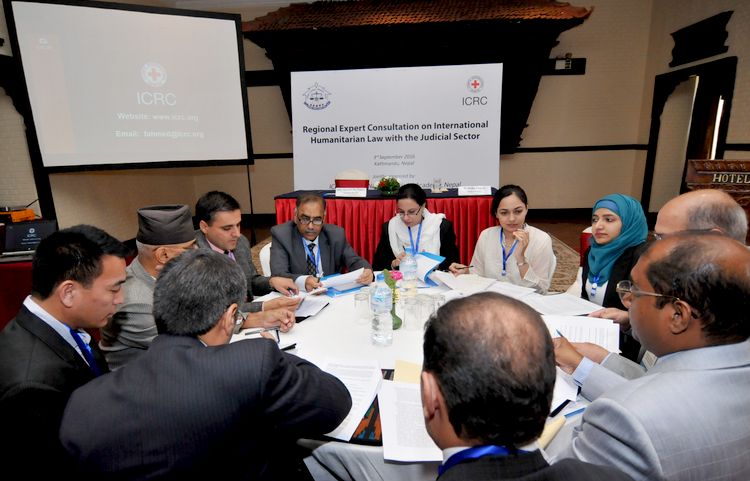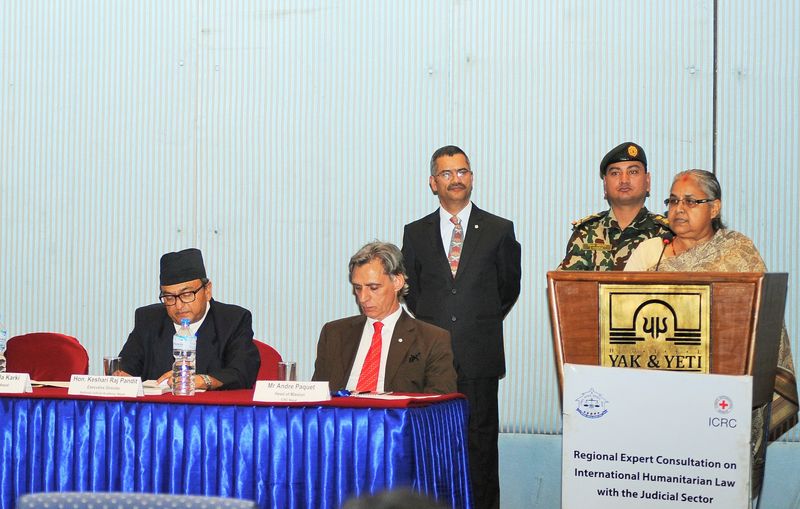According to Honourable Justice Sushila Karki, the first ever woman Chief Justice of Nepal, “The judiciary needs to know the evolving issues of the international humanitarian law”. Chief Justice Karki was addressing the Regional Expert Consultation on International Humanitarian Law (IHL) with the Judicial Sector which recently concluded in Kathmandu.
This first-of-its-kind regional expert consultation was organised jointly by the ICRC in Nepal and the National Judicial Academy (NJA) Nepal. Seventeen high-level representatives from the judicial academies in seven South Asian countries — Afghanistan, Bangladesh, Bhutan, India, the Maldives, Nepal and Pakistan — and Iran participated in the discussions.
Experts deliberated on various issues pertaining to IHL such as ‘prosecution of international crimes in the national legal order’ and ‘current level of integration of IHL into the continued professional development curriculum of the judiciary’. A group discussion was also held with an objective of gaining a better understanding of ways in which national courts have contributed, or could contribute, to the interpretation clarification, enforcement and development of IHL. A four-point Kathmandu Declaration was unanimously adopted at the end of the consultation.

Representatives from the judicial academies in seven South Asian countries participated in the discussion.
Honourable Raman Kumar Shrestha, Nepal’s Attorney General, also addressed the closing ceremony. He said it was the perfect time for this kind of expert consultation as Nepal is in the position to discuss what the international humanitarian law says in its own current context as it needs to address the issues of transitional justice and the sooner this happens the better it would be.
Shrestha added that in order to deliver transitional justice effectively in Nepal, the seven aspects that need to be comprehensively taken into account are: victims, national laws, international human rights law, international humanitarian laws, comprehensive peace accord of Nepal, national needs, principles of transitional justice and the verdicts of Supreme Court of Nepal.
Honourable Ajay Shankar Nayak, minister for law, justice and parliamentary affairs in Nepal, appreciated the ICRC’s increased interaction and activity with the judicial sector of the country.
Andre Paquet, the head of ICRC mission in Kathmandu affirmed that since the national judicial sector is entrusted with the task of interpreting and applying the law, it plays a key-role in the implementation of international humanitarian law.
Concluding the ceremony with his remarks, Honourable Keshari Raj Pandit, executive director of the NJA, recalled the NJA’s collaboration with the ICRC earlier this year in organization of the Workshop on International Humanitarian Law for Judges, Prosecutors and Court Officers. In addition to officials from the government and judicial officials, members of security forces, legal practitioners, academicians and Red Cross members attended the function.


